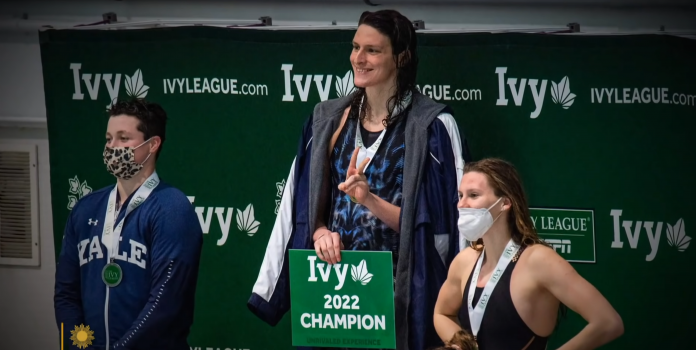(John Ransom, Headline USA) In a letter to the NCAA board of governors, the women swimmers from the University of Arizona blasted the NCAA’s decision to allow transgender swimmer Lia Thomas to compete against biological females, according to Swimming World magazine.
I am proud of American women who stand up for our sex-based rights.
This is a country with no guaranteed healthcare or maternity leave & a market rate for infant childcare of $2K a month.
This letter is amazing. I hope to see more of this. Thanks, U of Arizona swimmers! https://t.co/cKZKtFiKoE
— jeviensdc (@jeviensdc) March 26, 2022
The letter, quoted in whole in the magazine, said that the NCAA “successfully failed everyone”—including transgender athletes—in allowing Thomas to compete this year.
“A target was placed on the back of a trans athlete subjecting this person to devastating national outcry and humiliation,” said letter, which asked if the swimmers themselves had a voice that could be heard.
The letter’s comments echoed questions that can be heard all around the world as Thomas’s domination of women swimming this year has created a “world that has gone mad,” said the Daily Mail. Its article that featured a photo of the 6-foot-1 Thomas towering over the runner up, Olympian Emma Weyant, who stands 5 feet, 8 inches.
“How do I explain to my daughter, yes, you can wake up at 5 a.m. every day for 10 years and work really hard, but then there is no chance you can win?” asked Barbara McMahon, the mother of one swimmer who has said she might give up the sport now, according to the Daily Mail.
Getting past the testosterone and male puberty arguments about the advantages transgender athletes have competing against biological women, scientific studies have shown that taller swimmers have an advantage over shorter swimmers because they have less drag in the water, thus less resistance to work through.
“Through no fault of their own, the short swimmer has to deal with about 40% more wave drag to swim at the same speed as the tall swimmer!” wrote Alan Couzens, a sports scientist, who went through the math explaining drag in swimming.
The letter from the women swimmers at the University of Arizona also attacked the NCAA for being made up “predominantly of men,” noting that of 65 athletic directors in the Power Five division, only five were women.
“These revelations and disparities alarm us when it seems there was no urgency in skillfully and educationally addressing how the scientific and biologic differences may impact women’s competitions,” said the letter.
“Do we have a voice?” it asked in conclusion.
Well they certainly have found their voice, if nothing else.

